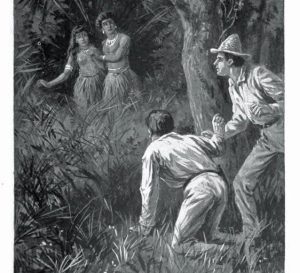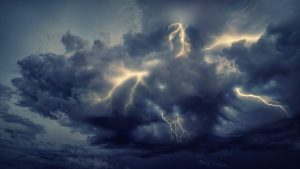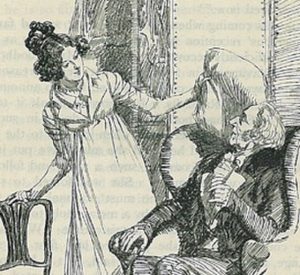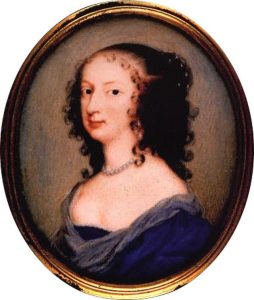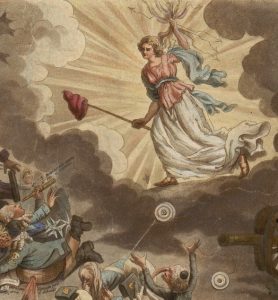Destined Distance Between Melville, Tommo, and the Typee
The Valley is Eden, the people are gods and goddesses, the structures are antiquities, and Tommo—as well as Melville—can only ever be a corrupt civilized man.
Atmospheric Prisons and Incomplete Epiphanies in The Matrix and Jane Austen’s Emma
Emma’s moments of self-realization parallel those of Neo through the symbolic use of these atmospheric techniques, which serves to emphasize first the reluctance and doubt, then later the freeing acceptance of truth for both characters.
Heroes and Heroism in Moore and Gibbons’ Watchmen
Ultimately, no heroes exist in Watchmen. The superheroes have abandoned compassion, instead choosing campaigns that leave them bereft in the act of saving actual human beings and almost fully empty of real heroism.
Austen’s Emma: Self-Knowledge and Growth
Satirically critiquing her characters’ behaviours and the English society in which they—and she—live, Jane Austen sketches a vivid portrait of her characters, their flaws, and the confines under which they operate in Emma.
The Danger of the Unclassifiable Form: Hybridity, Rulership, and Knowledge within Cavendish’s Blazing World
The Empress overlooks gaps within her own understanding in favour of creating an empirical understanding of the world around her; she rejects the hybridity of the animal men, and she rejects knowledge of the immaterial world.
The Restrictive Power of Schools and Streets in Ta-Nehisi Coates’s Between the World and Me
Between the World and Me exposes both groups as manifestations of how America methodically oppresses black people, specifically by accentuating the power and prestige of those who believe they are white.
This World of My Devising: The Author as Authority and Other in Cavendish’s The Blazing World
This essay concentrates on the treatment of authority and authorship in Margaret Cavendish’s The Blazing World, particularly through the lens of otherness.
Double Standards: Analyzing the Gender Inequality Lurking in Rousseau’s Discourse
In this essay, I will elucidate why Rousseau places so much emphasis on the presocial, how his biased discussion thwarts any subjectivity that Woman ought to possess, and why he views modern Woman as a dangerous force within society.
A Class of Their Own: Empowerment through literature in Coates’ Between the World and Me, Plath’s The Bell Jar, and Shelly’s Frankenstein
Education offers empowerment. To know more about the world, the people in it, and how they respond to the hardship around them is to prepare for life as an independent adult.
Same Racists, Different Experiences: Comparing Race, Assimilation, and Identity through Literature
In The Inconvenient Indian, Thomas King writes that “somebody once told me that racism hurts everyone. Perhaps in the broader sense of community, this is true. All I know is that it seems to hurt some much more than others” (King 185).
